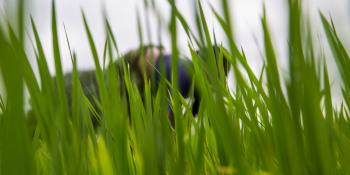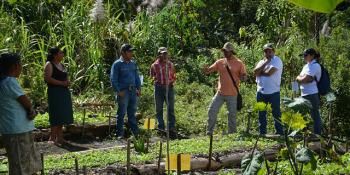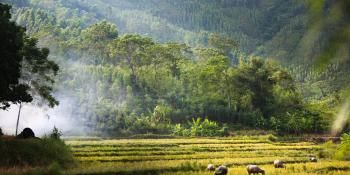Global Conference on Women in Agriculture
Women farmers represent more than a quarter of the world’s population. Women comprise, on an average, 43 per cent of the agricultural work force in developing countries, ranging from 20 per cent in Latin America to 50 per cent in Eastern Asia and Sub-Saharan Africa. Yet women have less access than men to agriculture related assets, inputs and services. Had they enjoyed the same access to productive resources as men, women could boost yield by 20-30 per cent; raising the overall agricultural output in developing countries by two and a half to four per cent. This gain in production could lessen the number of hungry people in the world by 12-17 per cent, besides increasing women’s income.
Women farmers represent more than a quarter of the world’s population. Women comprise, on an average, 43 per cent of the agricultural work force in developing countries, ranging from 20 per cent in Latin America to 50 per cent in Eastern Asia and Sub-Saharan Africa. Yet women have less access than men to agriculture related assets, inputs and services. Had they enjoyed the same access to productive resources as men, women could boost yield by 20-30 per cent; raising the overall agricultural output in developing countries by two and a half to four per cent. This gain in production could lessen the number of hungry people in the world by 12-17 per cent, besides increasing women’s income. Against this backdrop, the Global Conference on Women in Agriculture (GCWA) is being organized with participation of researchers, policy makers, women farmers and other stakeholders from different regions of the world.
Goal and Objective of the Conference
The goal of the Global Conference on Women in Agriculture is to empower women for inclusive growth in agriculture.
Objectives:
- To discuss and deliberate the prevailing and emerging gender issues in agriculture and food systems and the lessons learned for future sustainable development;
- To take stock of evidence on experiences in enhancing role of women in agriculture;
- To understand the mechanisms and approaches adopted by the international organizations, regional fora, countries and civil society for empowering women and addressing gender issues in agriculture, and
- To collate lessons on strategies for strengthening gender research in agriculture to make technology generation and dissemination, agricultural planning and policy making gender sensitive and disseminate them through an edited book and develop a Framework for Action.
Conference Themes
- Assessing Women's Empowerment in Agriculture
- Agricultural Innovations for Reducing Drudgery
- Linking Women to Markets
- Role of Women in Household Food and Nutritional Security
- Access to Assets, Resources and Knowledge: Policies and Services
- Impact and Responses to Climate Change Related Risks and Uncertainties
In addition, there will be Working Group discussions to have a Framework for Action on Engendering Agricultural Research, Education and Extension.
Expected Outcomes
- New knowledge and experiences shared from cross-country programmes as well as inter-regional/global successes concerning the role of women in agriculture
- Strategies developed for addressing gender issues in agriculture at the local, national, regional and global level
- Technological and institutional innovations to better meet the needs of farm women
- Gaps and needs for research, education and extension in issues related to women's role in agriculture identified
- A Framework for Action developed to integrate and empower women for inclusive growth and development through agriculture
- An enduring global partnership program on gender in agriculture established.
At the conference CCAFS will be represented by Pramod Aggrawal, Regional Program Leader of the benchmark site South Asia and Patti Kristjanson, Leader of CCAFS Theme 4.1 Linking Knowledge with Action.
For more information the please visit the event homepage. To view the conference program click here (PDF).


